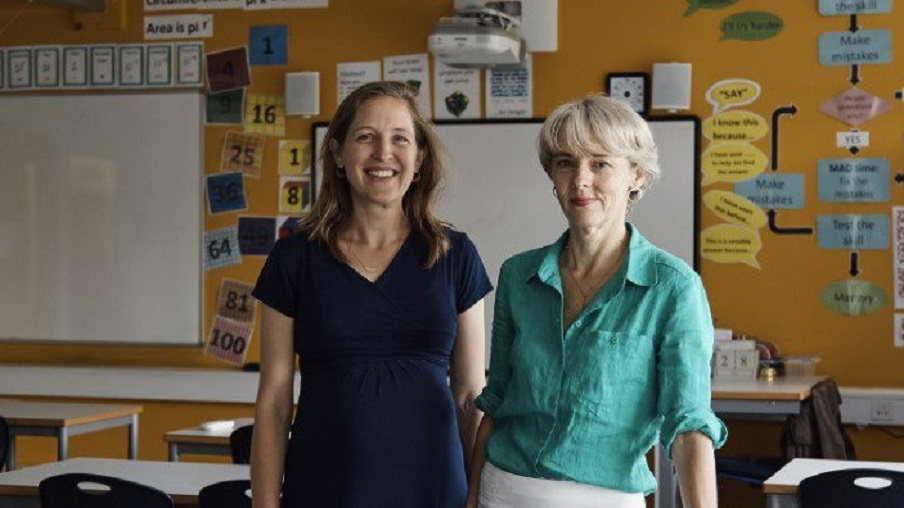Before you start your teacher training application, you’ll need to pick a subject area to train in.
Apart from actually deciding to change career, picking your subject is one of the most important choices you’ll make on this journey. Because it’s such an essential decision, it can be one of the most difficult.
The good news is that not knowing which subject to train in shouldn't stop you from applying to Now Teach. There’s plenty of support to help you make the choice that's right for you, so if you haven't decided yet, get in touch.
As you start to think about it, I've laid out some factors to consider as you weigh up your options.
What am I qualified to teach?
Firstly, it’s important to know what your options are. Generally speaking, you're eligible to teach any subject where you have an A Level or undergraduate degree (or equivalent), though some training providers prefer that you have a degree.
Masters, MBAs and other degrees aren’t recognised by training providers for subject eligibility, but they can support your application more generally.
If you did a multi-subject degree you can train in one of those subjects, as long as it was 50% (or more) of your degree focus.
So, your options are the A Levels you took or the degree subject that you studied as an undergraduate. In order to narrow it down further you’ll probably want to consider which of these subjects you enjoy the most.
You’re going to be talking about for a lot of hours, week in and week out, so the more that you enjoy it the better!
It might also be interesting to look at what the current GCSE and A Level curricula are, to get a sense of what teaching that subject would be like. There are useful resources here and here.
Narrowing it down
If you find yourself torn between two or more subjects, you might want to factor in the finances of retraining.
Some priority subjects, such as Maths and Science, come with a bursary to study. The exact amount the bursary is worth varies, but it can be up to £24,000 and is tax free.
Non-priority subjects, such as English and History, do not have bursaries attached to them. So, if you’re torn between a subject which comes with a bursary, and a subject which doesn’t, then your mind might be made up for you.
You could also consider how popular your prospective subjects are - we can advise you here. There can be competition in some subjects as we get towards the summer, so this should inform your decision-making process and timings.
Once you’re confident in your choice, we encourage you to get your application in. Being able to choose your training provider, and make sure the school where you'll train is close to home, will make a real difference to your year as a trainee. This will be more likely the earlier you apply.
Keeping an open mind
It’s useful to remember that you don’t actually have to teach the subject you qualify in. It’s technically possible to qualify as a physics teacher and then teach drama and dance.
But when it comes to finding a job in a school after your training, many employers will obviously prefer that you’re qualified in the subject you intend to teach. And if you definitely want to change subject, it’s usually an easier transition if you qualify in a related subject. A good example of this is Now Teach founder Lucy Kellaway, who trained as a maths teacher but now teaches economics.
Don't forget that your involvement in a specific subject doesn’t have to be limited to what you are timetabled to teach.
If you love music but are training to teach maths, most schools will have ample opportunities for you to be involved in the musical life of the school, whether that’s helping out with a choir, the school musical, or running an after-school club to teach instruments.
You’re going to be talking about for a lot of hours, week in and week out, so the more that you enjoy a subject the better!
Think about your future department and team
When picking a subject it’s also worth looking at the composition of that subject within a school and the likely size of the department.
Everyone at a secondary school takes English or maths at least until GCSE, so there will be more teachers, compared to an elective subject. Drama or art are likely to have fewer teachers in a smaller department, and also likely to teach fewer students.
So if you like working in smaller groups, a non-core subject might suit you better. Similarly some subjects, like business studies, are taught predominantly at A Level, so if you feel more comfortable teaching older pupils that might factor into your decision making progress.
One thing you don’t need to worry about is whether you already know the subject inside out. As long as you’re willing to do some revision, Now Teach can support you in getting up to speed with the current curriculum.
What subject is most important to you?
Lastly, consider which subjects need you the most. Are you able to clearly explain complicated concepts which might otherwise put students off learning maths entirely? Can you convince someone who has never read a book in their life that they actually love Charlotte Brontë?
If you have a strong instinct about which subject most improves a student’s life, then that’s probably the one for you.
Ultimately, while picking a subject is an important moment, and there are lots of considerations to factor in, it’s not a choice that you have to make by yourself.
The team at Now Teach are trained to help you make this decision and are trained to talk to you about what the right subject (or subjects) might be.



